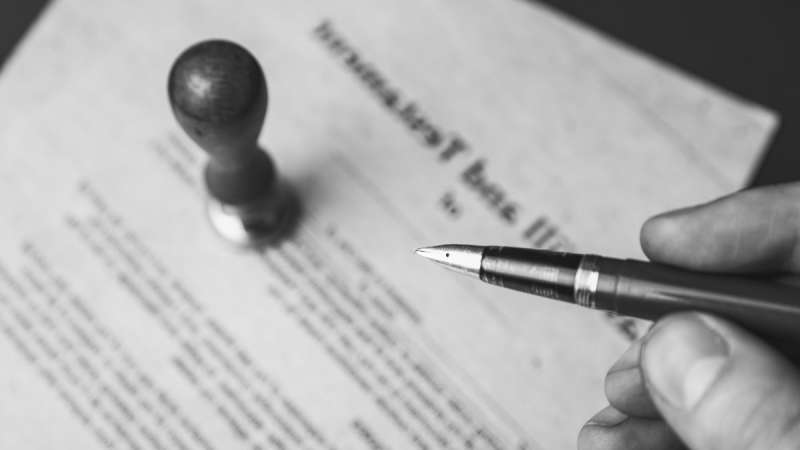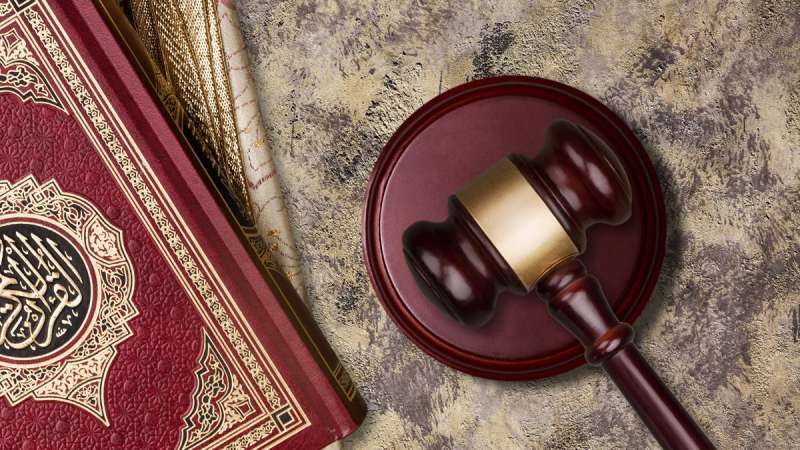What is a Sharia compliant Islamic Will?
An Islamic Will is a legally binding document which sets out the distribution of your estate in accordance with the principles of Sharia law.
“It is the duty of a Muslim who has anything to bequeath not to let two nights pass without writing a will about it.” - (Hadith, cited by Bukhari)
The Sharia-Compliant Will covers the same important aspects as a secular Will such as the appointment of your executors and your guardians for minor children. However, the Sharia Will also ensures that your estate is distributed in accordance with the Islamic succession laws.
For your Will to be Sharia-Compliant:
- Your executor (or wasi) must be Muslim
- A minimum of two thirds of your estate must be left to living family members per Islamic succession laws.
- The entitlement of your heirs is fixed. It cannot be determined in advance as the exact distribution will depend on which family members have survived you at the date of your death.
- One-third of the estate can be allocated to anyone not entitled to a fixed share, such as a charity, friends or more distant relations It cannot be used to boost the entitlement of heirs.
By making a Sharia complaint Islamic Will, you can also leave a third of your estate to beneficiaries who would not benefit automatically under the principles of Islamic law e.g. charities. It can also deal with religious debts such as unpaid zakat (compulsory charity) and compensation for missed prayers and fasts.
How can I ensure my Islamic Will is legal in England?
By instructing a professional solicitor to make your Will, you will also have peace of mind that your Will is valid under English law. For the Will to be valid under English law, the following rules must be followed:
- You must be 18 or over;
- You must make the Will voluntarily and be of sound mind;
- The Will is in writing and signed by you as the person making the Will, or some other person in your presence at your direction;
- Your signature is intended to give effect to the Will; and
- Your signature is made in the presence of two or more witnesses present at the time.
By making a Sharia-Compliant Will, Muslims can have peace of mind that their estate is being distributed in accordance with their religious beliefs.
Islamic Will Calculator – Who Is Entitled to What?
Islamic wills, also known as wasiyyahs, are determined according to Sharia law, which outlines the distribution of assets after a person's passing.
An example case study showing the distributions as per the key inheritance rules under Sharia law:
Husband has died leaving wife, 1 son and 1 daughter. His parents have predeceased him.
- 12.5% would pass to the surviving wife
- 58.34% to his son
- 29.16% to his daughter
The proportions passing to the beneficiaries will need to be reduced if the testator leaves one third of his estate to other beneficiaries such as charities.
Wife dies leaving husband, 1 son and 1 daughter. Her parents have predeceased her.
- 25% to surviving husband
- 50% to her son
- 25% to her daughter
Contact our Islamic Wills specialists, who will provide you with a tailored questionnaire to help create a personalised breakdown of how your assets will be distributed according to Sharia Law.
Why Work With Our Islamic Wills Team
- Our Wills, Trusts and Probate Team includes members of Society of Trusts and Estates Practitioners (STEP) with extensive experience of dealing with estate planning who can provide you with bespoke advice to ensure your Will is made in accordance with your religious beliefs, but also advise you on your inheritance tax position and asset protection.
- Our Wills, Trusts and Probate Team also has experience in dealing with cross-border estates.
- We have been ranked as a Top Tier law firm by the Legal 500 for the last seven years, and Myerson is recognised as a Top 200 UK law firm.
- You will have access to Myerson's full Wills, Trusts, and Probate experts; we have a large team capable of meeting your deadlines.
- When dealing with estates, we never forget that we are dealing with a grieving family, so our solicitors are tactile when handling a deceased person's estate.
- Our Wills, Trusts and Probate lawyers understand that estate administration can be complex, particularly when disputes arise.
- Our Wills, Trusts, and Probate solicitors appreciate that every person's circumstances are different, and our clients have different attitudes to tax saving and the distribution of their estates, so we take the time to find the best way to achieve our client’s aims.
- Our holistic approach means we can spot potential tax-saving opportunities the client may need to know. We can also warn where the client's proposals may lead to unexpected tax liabilities.
- You will receive city-quality trusts, wills, and probate advice at regional prices.
- We provide a partner-led service to ensure you receive the best legal advice and commercially minded support.
- Our personal service will prioritise your best interests as we push to fulfil your and your loved one's wishes. We understand the depth of emotion that matters relating to final wishes can hold, so we provide expert advice, support, and understanding.
- Our full-service law firm operates from a one-site office, so our teams communicate effectively and efficiently, sharing their considerable expertise. We may consult with our family law and property law teams to maintain an efficient and complete service.
- Our Wills, Trusts and Probate team works closely with our contested wills solicitors to ensure you get expert legal advice from specialist solicitors.
- We use the latest technology to ensure that we are working as efficiently as possible, and that geographical distance is no bar to us from providing excellent client service.
- Look at the Myerson Promise for further benefits of working with us here.
Islamic Wills FAQs
Why is an Islamic Will important?
Creating a Will is crucial for everyone, as it allows you to express your final wishes, helps prevent family disputes, and ensures your assets are passed on to the right individuals. However, it is especially important for British Muslims, as they reside in a non-Islamic country where, without a Will (dying intestate), their assets will not be distributed according to Islamic law.
Islam places significant emphasis on inheritance planning, which involves four key duties upon a Muslim’s passing:
- Payment of funeral expenses;
- Settlement of debts;
- Execution of their Will (including probate); and
- Distribution of assets in accordance with Sharia law.
The Qur’an provides specific guidance on how an estate should be divided among family members. For instance, if the deceased wife has no children, the husband inherits half of the estate.
What happens if you die without a Islamic Will in place?
English law differs significantly from Sharia law, meaning that if you pass away in England or Wales without a legally valid Islamic Will, your estate will be managed without considering your religious beliefs.
If you die without a Will, or one that does not comply with English law, your assets will be distributed according to the rules of intestacy. This can result in unintended divisions among family members, potentially leading to disputes and a prolonged, stressful probate process.
According to intestacy rules, if there are no surviving relatives eligible for inheritance, the estate is transferred to the Crown.
To avoid the complications of intestacy, it is essential that your Will is legally valid under the law of England and Wales. Therefore, it is crucial to seek professional guidance to ensure that your Will aligns with both Islamic principles and English and Welsh legal requirements.
What are Bequests?
Bequests are an important aspect to consider when writing an Islamic Will. They offer a unique flexibility within the otherwise structured guidelines of Islamic inheritance.
In Islamic Wills, the testator is permitted to distribute up to one-third of their estate as they wish, without adhering to the standard distribution rules set forth by the Qur’an or Sharia law. This discretionary portion is known as a bequest.
While using a bequest is optional, it provides an opportunity to allocate a portion of the estate according to personal wishes. Some may use it to donate to charity, leave a specific item to a loved one, or make a kaffarah payment to atone for missed prayers and fasts. However, if preferred, the entire estate can still be distributed strictly according to Islamic inheritance laws.
Rules for Bequests
When including a bequest in your Will, two key rules must be followed:
Specificity: Clearly specify in your Will what is being bequeathed and to whom. This could be a particular item, such as a piece of jewellery, or a specific sum of money.
Limit: The value of the bequest must not exceed one-third of your total estate.
Testimonials
Meet Our Wills, Trusts, and Probate Lawyers
Home-grown or recruited from national, regional or City firms. Our wills, trusts, and probate lawyers are experts in their fields and respected by their peers.
Contact Our Experts
You can contact our lawyers below if you have any more questions or want more information:




